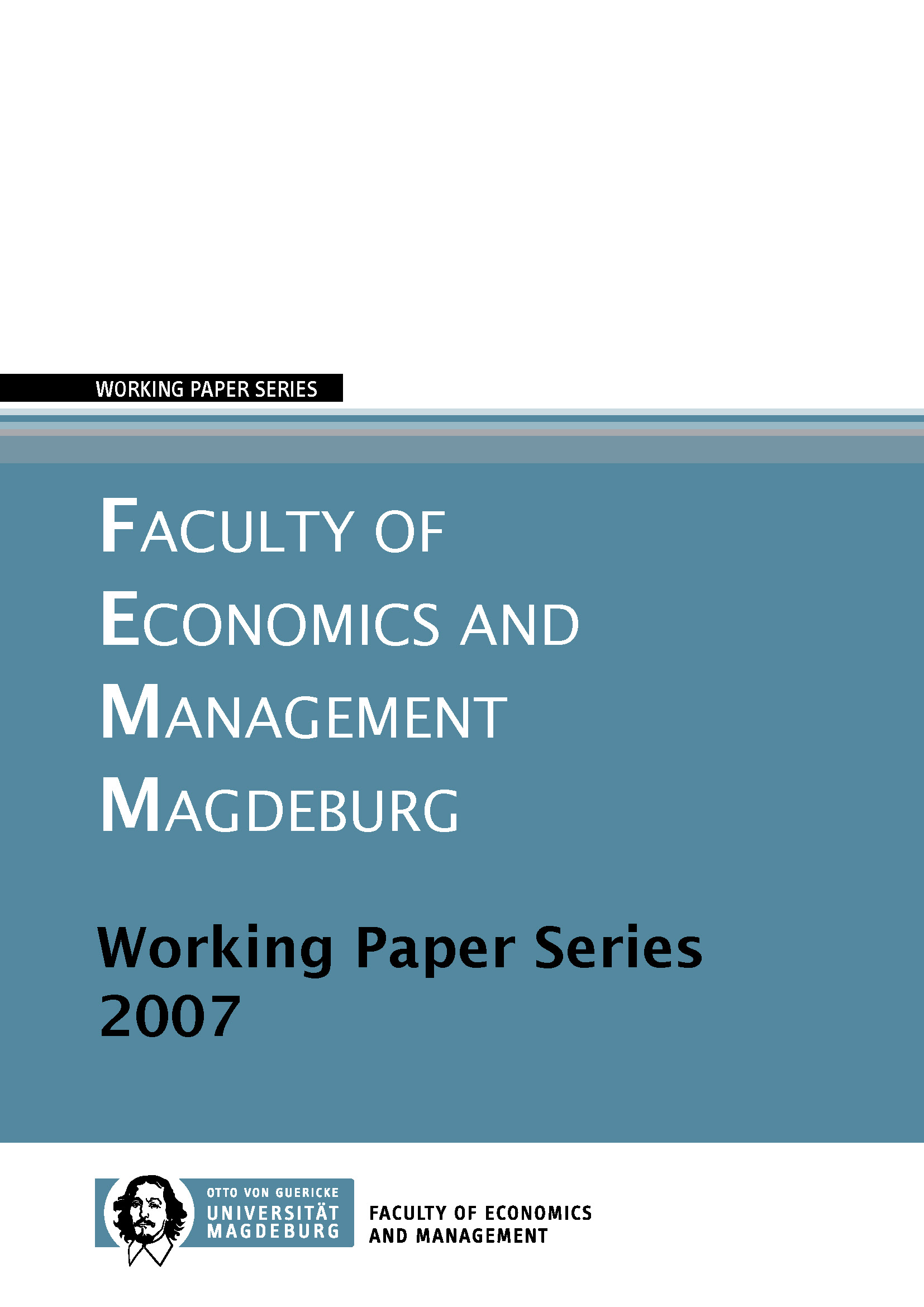An Experimental investigation of collusion in hard-close auctions
Partners and friends
DOI:
https://doi.org/10.24352/UB.OVGU-2018-337Schlagworte:
multi unit auctions, collusion, experimental economicsAbstract
We study collusion in the finitely repeated, hard-close auction experiment. Three subjects, identified by their bidder name, simultaneously compete in three auction markets. Due to the experimental design, subjects are enabled to the sharing of the benefits of cooperation by coordinating their individual demands. Similar collusive behavior has been suggested to play an important role in empirical markets (Klemperer 2002). We consider two treatments. In the first one, the partners treatment, subjects who are identified by bidder-names interact repeatedly but anonymously with each other. In the second one, the friends treatment, groups of three subjects who participate together in the experiment, interact repeatedly with another. In the experiment, we do not observe tacit collusion in the partners treatment; the outcome is efficient and prices converge quickly to the rational equilibrium prediction. Only in the friends treatment, cooperation gains can be realized, but much less cooperation is observed than one would imagine. We conclude that in the laboratory, cooperation is difficult to achieve in the hard-close auction market if anonymity prevails.


